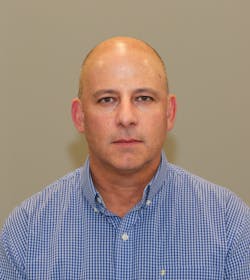Up in the Air: Creating a More Secure and Effortless Travel Experience
According to research conducted by the World Travel & Tourism Council (WTTC), Travel and Tourism was the fastest growing economic sector in 2017 and is set to outpace that in 2018. The number of air travelers worldwide will increase from approximately 4 billion to 7.8 billion by 2035 (IATA).
But while this growth creates many opportunities within the travel and tourism sector, it raises concerns within the airline industry. Will airlines be able to maintain efficiency while enforcing high security?
The results of a national consumer survey of 1,000 adult Americans reveal that some airports might already be suffering under the strain of passenger flow management. 60 percent of Americans report they have boarded a plane without proper identification and more than half (51 percent) say they have passed through security using some form of ID that didn’t include a photo at all (marriage license, credit card, etc.)
Biometrics and Document Authentication in the Airport
Travelers are ready to fully embrace technology that makes their lives easier and speeds up tedious processes. While convenience is the consumer mantra, sometimes this is at the expense of data privacy and even safety.
In the wake of REAL ID, a nationwide federal act meant to protect against identity fraud, Americans are proving ready to embrace new processes at the airport as well. Almost half (46 percent) of respondents would feel safe and comfortable using ePassports, which are passports with biometric information, and nearly as many (45 percent) would be on board with using digital IDs, meaning IDs that can be presented on a smartphone to confirm their identity.
Over the next three years, 77 percent of airports and 71 percent of airlines are planning major programs or R&D in biometric ID management to smooth curb-to-gate passenger flow. Airports in countries such as Britain, Singapore, Japan and China already use it and Dubai has plans for a biometric tunnel to better support its 243,000 passengers a day. The U.S. is beginning to deploy biometric technology as well; Delta Air Lines just revealed the first biometric terminal in the United States at the Maynard H. Jackson International Terminal in Atlanta. The TSA recently released details surrounding its initiative to modernize aviation passenger identity verification in the coming years.
Smart Airports, Biometrics, ePassports and Defining a Secure Identity Token
Government, industry, and aviation organizations are collectively pushing to create a frictionless travel experience for customers. There is a need for technologies that allow travelers to move throughout the travel continuum without the need for the presentation of an identity document.
Identity proofing and secure token generation/enrollment processes are critical to the mitigation of the risks that these new techniques introduce to the well-established security controls that are currently in place.
International standards for the security controls and interoperable data format are being developed to allow the e-passport data to be presented as a “Digital Travel Credential (DTC)” or identity assertion token, that is derived from the authoritative data. These controls ensure that the DTC can be authenticated with the same level of assurance as the source e-passport document.
Several token enrollment/delivery models have also been reviewed, and some have been implemented in both vendor-specific technologies and other self-sovereign identity solutions. While the enrollment and backend processing capabilities vary, both government and industry capabilities are being deployed today to support this biometric facilitation concept.
Flying doesn’t have to be the tedious, stressful experience it has become. The adoption of fast and easy identity verification via document authentication that can be tied to biometrics, EIDs and other technologies has the potential to make flying a fun experience again.
Yossi joined the Acuant team in May 2008. He has extensive management experience including many years at the helm of IPD and Maxsys Technologies as well as VP & General Manager of Federal Mogul FP Diesel division. Yossi holds a BS degree in biological science and an MBA from the University of California, Irvine.
About the Author

